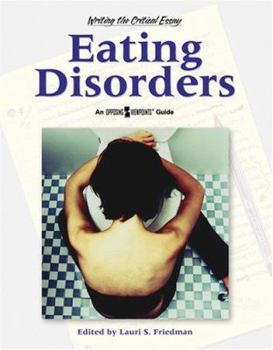Eating Disorders (Writing the Critical Essay)
Select Format
Select Condition 
Book Overview
Offering instructive guidance while avoiding a typical classroom feel, Writing the Critical Essay: An Opposing Viewpoints Guide directly supports student achievement. This exciting new series is specifically designed to help students write effective five-paragraph essays. Writing the Critical Essay: An Opposing Viewpoints Guide expands Greenhaven Press's celebrated Opposing Viewpoints product line, providing easy access to multiple sides of current, yet timeless debates - ideal subjects for persuasive writing. Writing the Critical Essay: An Opposing Viewpoints Guide has all a student needs to complete an essay on a chosen controversial topic. Using exemplary presentations of opposing viewpoints as research material, each book features: Model essays guiding students in writing a particular five-paragraph essay, including persuasive, descriptive, expository and cause-and-effect essays Guided reading and discussion questions helping students understand the essays themselves and target persuasive techniques authors use to compose convincing arguments A final essay encouraging students to go beyond the five-paragraph model Sequential step-by-step exercises helping students outline arguments, write introductions and conclusions, and ultimately construct their own essays Supplemental materials providing essay topic ideas Bibliographic and electronic resources for further research And more
Format:Hardcover
Language:English
ISBN:0333792416
ISBN13:9780333792414
Release Date:October 2001
Publisher:Palgrave MacMillan
Length:201 Pages
Weight:1.10 lbs.
Dimensions:0.8" x 5.7" x 8.8"
Customer Reviews
2 customer ratings | 2 reviews
There are currently no reviews. Be the first to review this work.



















